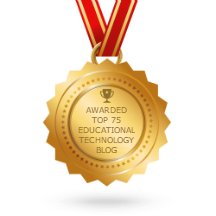| Dear CIDER member,
You are invited to our upcoming CIDER session on Wednesday, May 15, 2024. This free, online session will feature Michael Barbour of Touro University California and Randy LaBonte of the Canadian eLearning Network, providing us with the latest update in their long-standing State of the Nation reports on K-12 e-learning in Canada.
State of the Nation 2023: K-12 E-Learning in Canada
Michael Barbour and Randy LaBonte
May 15, 2024, 11am MT
http://www.cideresearch.ca/session/barbour-labonte-2024
The 2023 issue of the State of the Nation: K-12 E-Learning in Canada report marks its sixteenth year, and the eleventh year of the Canadian eLearning Network’s (CANeLearn) support of this research. The report continues to be Canada’s own benchmark for the expanding use of technology-supported blended, online, and distance learning in Canada. This report continues the traditional incisive analysis of the state of K-12 e-learning in Canada, as well as a description of several vignettes providing considerable insight about innovation and new approaches emerging in distance, online, and blended practices in K-12 programs across Canada.
Full results of the research and work undertaken in this study, including all annual reports and associated papers, are published on the State of the Nation: K-12 E-Learning in Canada project website. This session will provide a synopsis and overview of the latest version of this annual report.
Project website: http://k12sotn.ca
Registration is not required; all are welcome. To join the session, go to:
http://www.cideresearch.ca/session/barbour-labonte-2024
About CIDER Sessions: Call for presenters
The CIDER Sessions are an online, open and free seminar series through which researchers or research groups can present their work to a broad audience of fellow researchers, practitioners, and students from across Canada and around the world.
We invite researchers working in distance, distributed, online, or blended education. If you have recent research to share with our CIDER audience, contact dwilton@athabascau.ca with a brief description of your research topic and approximate date when it will be available for presentation. Spots are also available for students nearing completion of their dissertation or thesis. International presenters are welcome; all sessions are held in English.
About CIDER
CIDER is supported by the International Review of Research in Open and Distributed Learning (IRRODL) and the Centre for Distance Education, Faculty of Humanities and Social Sciences, Athabasca University: Canada’s Open University and leader in professional online education. For more information, visit:
http://www.cideresearch.ca
The Sessions and their recordings are open and available to all, licensed under a Creative Commons Attribution 4.0 International License. |










 12 Unique Blogs Are Written By Professors
12 Unique Blogs Are Written By Professors